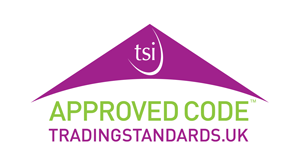 Tenant FAQs
Tenant FAQs
Frequently Asked Questions for Tenants
Frequently Asked Questions for Tenants
Renting a property as a tenant, whether for the first time or not, can be confusing. The laws and legislations for tenants, landlords and agents are constantly changing, so it’s important to know your rights and responsibilities with each tenancy. In this section of frequently asked questions for tenants we hope to answer some of the most common questions we receive from applicants and tenants.
Got a question we didn’t cover? Let us know via email.
Applying for a Property
- Income confirmed at 2.5x yearly rental amount (for example, if the asking rent on a property was £750PCM, tenants would have to confirm yearly income of £22,500 per annum (750.00 x 12 x 2.5) (OR can provide a homeowner guarantor with income 3x yearly rental amount)
- No adverse credit (CCJs, IVAs, etc. (OR if minor adverse credit, can provide a homeowner guarantor with income 3x yearly rental amount)
- Right to rent in the UK (find the UK Gov Right to Rent Guide here for more information)
If you’re self-employed, our referencing company will be looking at your last year’s tax return information to prove your income, and this will need to be 2.5x the yearly rent as stated above.
If you’ve been self-employed for less than a year, or fail to provide this information, you will most likely be asked to provide a homeowner guarantor for your application to be able to pass
No matter what your credit situation, it’s vital that you disclose any adverse credit BEFORE you apply for a rental property. You will usually be asked to disclose this when booking your viewing.
Your credit profile WILL be checked when going through referencing. If you are untruthful and are found to have adverse credit that you did not disclose, this is usually an automatic 'Unacceptable' referencing result.
Depending on the severity of your adverse credit (e.g. if you have an IVA or if you have satisfied any CCJS), you may be able to pass through referencing with or without a guarantor
However, again it is vital you disclose this to us before continuing with an application so we can find the best option for you.
Paying rent upfront for the duration of a tenancy is certainly an option if there is another reason why you are not able to pay monthly
This would have to be agreed between yourself, us as the agent, and the landlord before it is accepted
For example, if your monthly rent was £750PCM and you wanted to pay upfront for a tenancy of 12 months, this would be a total of £9000 upfront. This does NOT include your deposit.
Despite paying upfront, you will still be asked to go through a referencing process, which will include previous landlord references, income references and a credit/background check.
Our referencing process is nothing to be worried about!
It's used to ensure that applicants are able to afford the rent on a property and that they are a suitable tenant.
Our referencing checks include use of banking data (which you can opt in or out of), credit and background checks, previous landlord references and income checks (employment status & salary).
A guarantor is someone who agrees to be named on a tenancy agreement and is liable for the rent should a tenant be unable to pay.
A guarantor would need to go through much of the same process as a tenant when going through an application.
Guarantors would need to provide up-to-date photo I.D and proof of Right to Rent in the UK
They would also need to complete a referencing process, proving their credit history, background check, previous landlord reference and employment/income.
Guarantors need to prove their identity by bringing the original copy of their photo I.D into the office before keys can be handed over to a tenant
Guarantors also need to read and sign the tenancy agreement before keys can be handed over
Each property that we rent, and each landlord, is different. This means that whether or not pets may be accepted is dependent on many things. It can depend on the lease the landlord has on the property, the size of the property, the type and breed of the pets in question, etc.
When you find a property you're interested in, feel free to ask on your enquiry whether pets may be accepted.
Some landlords may agree to have pets in the property but for a slightly higher rental amount, so it is always worth an ask!
For all our rental properties, the deposit is calculated as 5 x the weekly rental amount.
For example, if the rental amount was £750PCM, this would be calculated as 750.00 x 12 (yearly rent) divided by 52 (weekly rent) x 5 = deposit of £865.00
When you rent a property, your landlord and agent puts trust in you to keep the property in a good condition. A deposit is held to ensure that any damages (over and above fair wear and tear) can be corrected at the end of the tenancy.
At Move On, we can offer a Nil Deposit Scheme that allows tenants to pay a lower 'check-in fee' rather than a full deposit to lower the costs of moving.
For more information on this, please get in touch.
As a general rule, we like to allow at least two weeks between the signing of holding deposit documents (the first stage of an application) and a move in if a property is ready at that stage.
This allows us and you plenty of time to complete the application and get everything ready.
HOWEVER, this is dependent on the property itself and when it has been advertised as 'Available From'
It may be the case that the property is not available until a specific future date, but your move in date will be agreed between yourself and our negotiators on your application.
Living in the Property
Unless stated in the advert or at the initial stages of an application, bills are not included in the rental of a property
However, usually bills are included in HMO rooms!
The arrangement and payment of bills such as council tax, water, electric, gas and broadband are your responsibility as a tenant (unless otherwise stated in your rental agreement). You will be responsible for ensuring your bills are paid fully and on time.
At Move On, we partner with a company called Just Move In.
Just Move In provide free services for tenants and movers in that they will alert utilities providers (such as the council, etc.) that a new occupier has moved into the property, so you won't need to worry about this.
Just Move In also offer a complimentary Home Setup Service which includes a setup call with yourself and they will assist you (for free!) to help set up your tariffs and bills.
For more information on Just Move In and how it works, click here or email us on enquiries@moveon.biz with your questions.
This depends on the type of repair.
If damage was made by yourself, you will most likely be responsible for fixing the issue (but make sure you tell your letting agent and/or landlord if anything happens in the first instance before trying to repair anything yourself!)
In general, the landlord is responsible for maintaining the property in a good state of repair. They will either take care of this directly, or do so via an agent like Move On. When you sign your tenancy agreement, make sure you know who to go to when there’s an issue throughout your tenancy.
Please do not make any decorative or other changes to a property you are renting without express written permission from the landlord. You are welcome to ask this question of your landlord at any time, either to them directly, or through the managing agent such as Move On.
If you do receive permission to make changes to a property, we recommend keeping a dated record of this (i.e. an email) in case there is a dispute at the end of the tenancy regarding the change made.
If you are in a fixed term tenancy, you are liable for the rent on the property until the fixed term is over.
If you are on a periodic (rolling) contract, your tenancy agreement will detail the steps you need to take and notice you need to give if you'd like to vacate the property.







 Investment Properties
Investment Properties